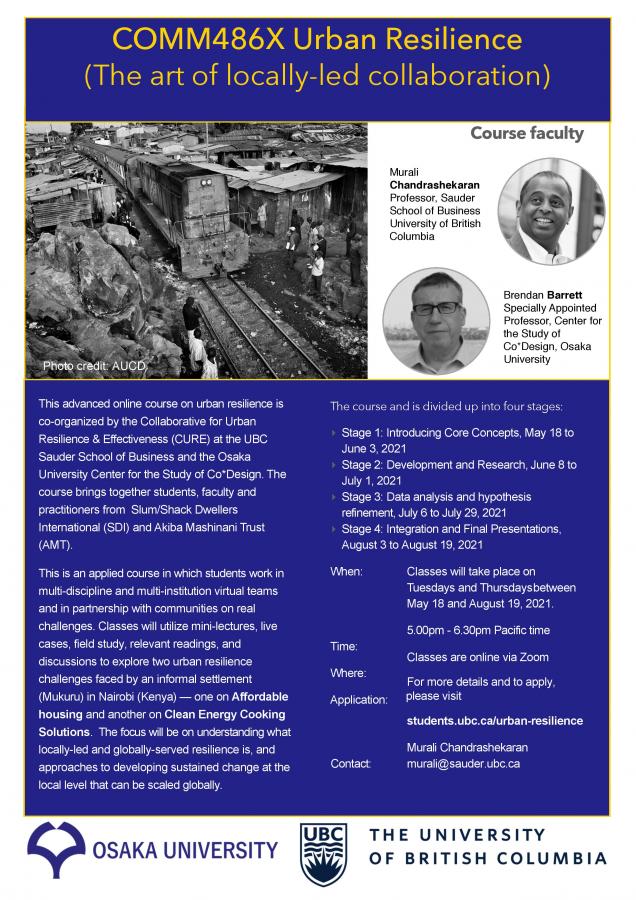Though history reveals that it has always been an accelerator of growth and development, urbanization poses profound challenges. Indeed, while cities are where the majority of the world’s population live, work and play, generating more than three-fourths of the world’s GDP, they are also at the frontlines of many disasters and risks. “… recent examples show how economic crises, health epidemics and uncontrolled urbanization can also affect the ability of a city to sustain growth and provide services for its citizens – underscoring the need for a new approach to resilient urban development,” as the World Bank notes.
Building on the project-based courses on urban resilience offered through Sauder’s Collaborative for Urban Resilience & Effectiveness (CURE) since 2016, UBC’s Global Virtual Classroom on Urban Resilience is an advanced applied 15-week course. Students will work in cross-disciplinary and cross-institutional teams, engaging with faculty from UBC and Japan’s Osaka University, as well as community leaders from Slum & Shack Dwellers International and Akiba Mashinani Trust.
Dr. Murali Chandrashekaran will focus on understanding principles underpinning locally-led and globally-served resilience – collaboration and change that is guided by empowering local stakeholders, inclusion, participation, justice and equity, and a commitment for finance to be committed for local actors to invest in their resilience priorities. Dr. Chandrashekaran is the Fred H. Siller Professor of Marketing and Behavioral Science at the Sauder School of Business, and UBC Vice-Provost, International.
The curriculum addresses the UN Sustainable Development Goal 11 “to make cities and human settlements inclusive, safe, resilient and sustainable” through a combination of live cases, field study, mini lectures, targeted readings and online discussion. The group will delve into issues that Mukuru, an informal, borderless settlement near Nairobi, Kenya, faces – for example, affordable housing and clean energy cooking solutions.
Co-created by the Sauder’s CURE and Osaka University’s Center for Co-Design, and offered by the Go Global program, the course runs May 18 to August 19. It is open to senior-level undergraduate and graduate students from an array of disciplines, including business, engineering, environmental studies, urban design and architecture, land and food systems, and public policy.
Students can apply online by May 3.
